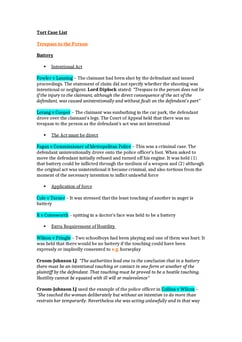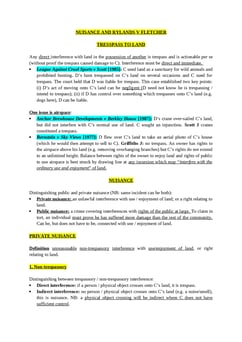Morris v Murray [1990] 3 All ER 801
Judgement for the case Morris v Murray
Table Of Contents
Plaintiff and Defendant were drunk and went for a drive in Defendant’s light aircraft, which Defendant crashed, dying himself and Plaintiff being injured.
Plaintiff sued Defendant’s estate for his injuries, and Defendant tried to raise either violenti non fit iniuria OR contributory negligence.
CA held that the “violenti” defence succeeded, so that Plaintiff’s damages were not recoverable.
Fox LJ
The “violenti” defence succeeds because Plaintiff was not so drunk as not to be aware of what Defendant was doing, e.g. he asked Defendant to “radio in”.
Therefore he was aware of what was happening, knew Defendant had been heavily drinking, and must have been aware that this would impair Defendant’s ability to fly. Therefore it can be implied that Plaintiff was consenting to the risk.
There is no suggestion that the 1988 Act (above) applies to planes.
For Further Study on Morris v Murray

A collection of the best GDL notes the director of Oxbridge Notes (an O...
Need instant answers? Our AI exam tutor is here to help.
Ask questions 🙋 Get answers 📔 It's simple 👁️👄👁️
Our AI is educated by the highest scoring students across all subjects and schools. Join hundreds of your peers today.
Get StartedRelated Product Samples
These product samples contain the same concepts we cover in this case.
| Tort Law | Defences Notes (9 pages) |
| GDL Tort Law | Defences To Negligence Notes (4 pages) |

 Since 2010, Oxbridge Notes has been a trusted education marketplace, supplying high-quality materials from top achievers at universities like Oxford, Cambridge, LSE, Harvard, and Yale.
Since 2010, Oxbridge Notes has been a trusted education marketplace, supplying high-quality materials from top achievers at universities like Oxford, Cambridge, LSE, Harvard, and Yale.